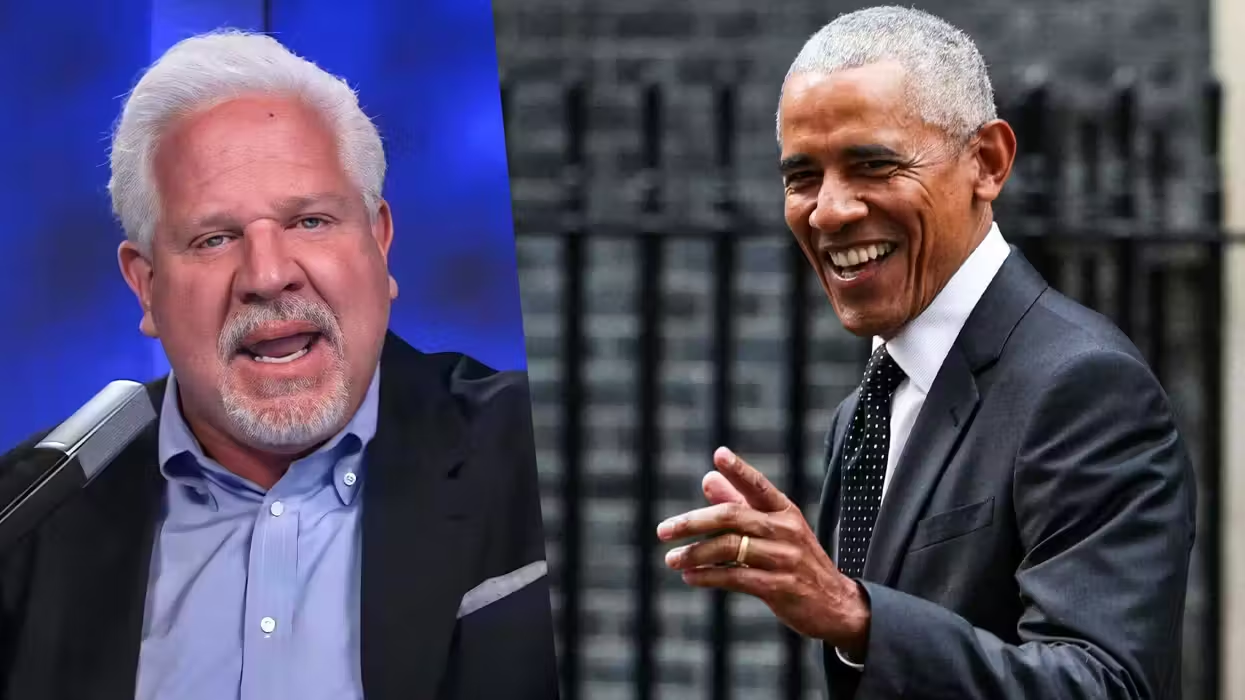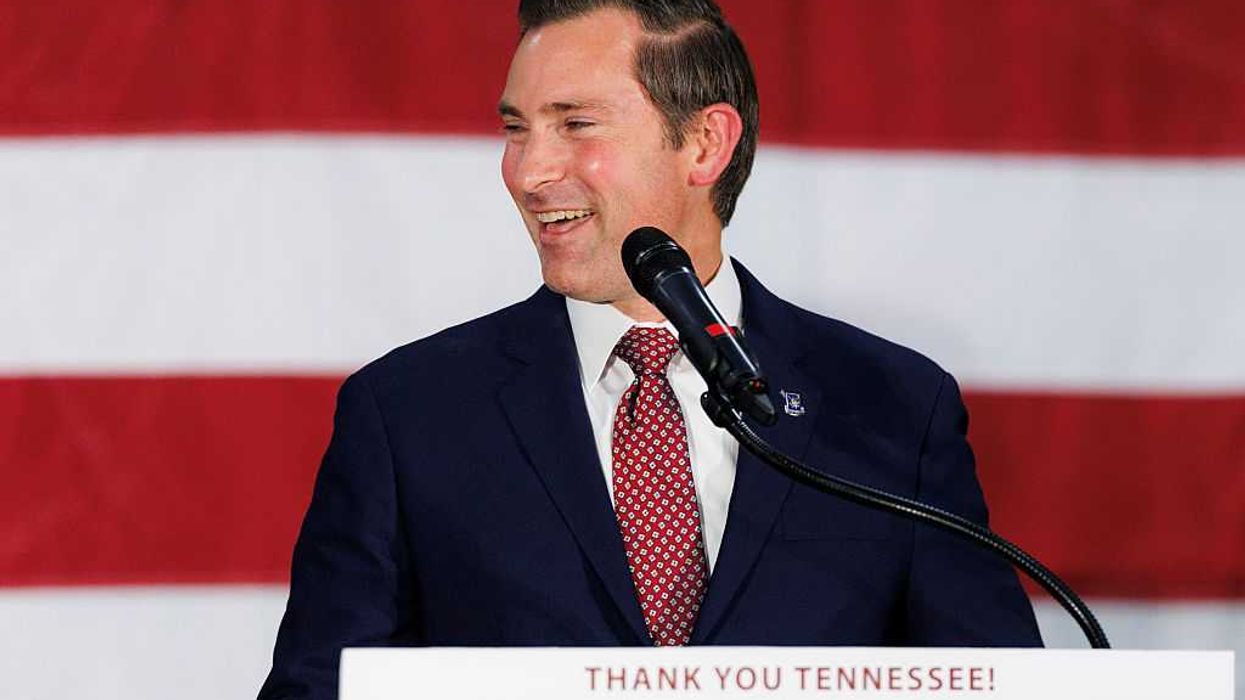With Resident Obama’s annual excursion into fiction, something we used to call the State of the Union Speech, in the rear view mirror, it’s time to get back to reality. An extremist liberal, Jonathan Capehart, took to the pages of "The Washington Post" to launch a preemptive strike on the next substantive debate we will grapple with as a country: the debt ceiling.
Capeheart, responding to Sen. Ted Cruz’s accusation that raising the debt ceiling is just a blank check for Obama, wrote:
Raising the debt ceiling is neither a blank check nor a blank credit card. It is not about future spending. Such an action is necessary for the payment of past spending approved by Congress.
First, I'd ask Capehart, “What makes Obama so special that he should be exempt from negotiating on the debt ceiling?”
 A sheet of rare and sought after star notes is seen after the phase of production where the new 100 USD bills are applied with a serial number, a US Federal Reserve seal, are cut and stacked at the US Bureau of Engraving and Printing's Western Currency Facility October 11, 2013 in Fort Worth, Texas. Photo Credit: AFP PHOTO/BRENDAN SMIALOWSKI
A sheet of rare and sought after star notes is seen after the phase of production where the new 100 USD bills are applied with a serial number, a US Federal Reserve seal, are cut and stacked at the US Bureau of Engraving and Printing's Western Currency Facility October 11, 2013 in Fort Worth, Texas. Photo Credit: AFP PHOTO/BRENDAN SMIALOWSKI
Congress first established a federal debt limit in 1917. In 1939, Congress modified the original law, eliminating the restrictions on types of debt, and created the general federal debt ceiling that remains in place today. Our original debt ceiling was set at $45 billion. Since then presidents and Congresses have negotiated over the debt ceiling, the premise being that Congress and our president should be working toward a government that lives within its means.
Sadly, non-debt-related initiatives have been born of these negotiations. These debates have often been rancorous. In an odd bit of irony, one of the more noteworthy debates sprang up between Sen. Wayne Morse of Oregon and Sen. Homer Capehart of Indiana back in 1953.
But presidents from Dwight Eisenhower to Jimmy Carter, from Ronald Reagan to Bill Clinton have negotiated over the debt ceiling. In an era where Obama and his acolytes are trying to convince Americans that his extremist policies are just like any other president’s, it’s an odd play indeed to say that Obama should be treated differently from his predecessors.
Jonathan Capehart calls Sen. Cruz “irresponsible” for couching the argument in terms of handing Obama a blank check. Isn’t the truly irresponsible thing to continue to raise the debt ceiling without instituting mechanisms to ensure that the ceiling isn't hit again?
[sharequote align="center"]The debt ceiling was put in place in a time when politicians were a bit more responsible.[/sharequote]
I’m sure that the concept of a ceiling isn’t lost on a majority of Americans, even Americans impeded by Capehart’s affliction--liberal ideology. It’s fairly straightforward. The debt ceiling was put in place in a time when politicians were a bit more responsible. Our current, rudderless partisans, of both parties, should endeavor to honor the limits placed on their ability to spend and incur debt on the backs of the American people.
 U.S. President Barack Obama (L) meets with Senate Democratic leadership, including Senate Majority Leader Sen. Harry Reid (D-NV) (R), to discuss the government shutdown and the nation's debt ceiling in the Oval Office of the White House October 12, 2013 in Washington, DC. The U.S. Government is on its 12th day of a shutdown. Credit: Getty Images
U.S. President Barack Obama (L) meets with Senate Democratic leadership, including Senate Majority Leader Sen. Harry Reid (D-NV) (R), to discuss the government shutdown and the nation's debt ceiling in the Oval Office of the White House October 12, 2013 in Washington, DC. The U.S. Government is on its 12th day of a shutdown. Credit: Getty Images
The liberal refrain, echoed by Resident Obama, is that debt ceiling negotiations should occur during the normal budget process. But this fails to recognize that with Sen. Harry Reid in charge of the Senate--budgets, much less anything resembling budget processes--are hard to come by. An average of one budget per five years doesn’t scream, “serious political leadership,” among Democrats.
Plus, the very idea that negotiations designed to curb government’s overspending MUST be conducted outside the realm of the debt ceiling is laughable on its face.
The truth is, when Americans are properly focused on government’s excessive spending is precisely the time to negotiate on the debt ceiling if one has America’s best interests at heart. It is a time when Americans rightly reject the idea that overspending is, “structural.”
Tax payers are right in pointing out that Congress instituted the “structure,” that led to our massive debt and overspending. American’s are also correct that Congress is equally capable of reversing that, if they believe that their jobs are at risk. It is our job, as informed American citizens, to drive that reality home to our alleged leaders.
What’s missing in America is the proper shame, disgust and condemnation for politicians who routinely spend more money than is brought in through taxes. Hitting the debt ceiling is a national disgrace. It’s an accurate warning to “We the People,” that our politicians are immature, irresponsible and seriously lacking in leadership.
After all, we as citizens can live beyond our means. But we can do so ONLY for a limited time. What makes those in government believe that they are not constrained by that same limitation?
With a debt that now equals the nation's gross domestic product, it's time to reverse this national black-eye and elect people who pledge to put America on a course that prevents us from ever hitting that debt ceiling again.
–
TheBlaze contributor channel supports an open discourse on a range of views. The opinions expressed in this channel are solely those of each individual author.

 A sheet of rare and sought after star notes is seen after the phase of production where the new 100 USD bills are applied with a serial number, a US Federal Reserve seal, are cut and stacked at the US Bureau of Engraving and Printing's Western Currency Facility October 11, 2013 in Fort Worth, Texas. Photo Credit: AFP PHOTO/BRENDAN SMIALOWSKI
A sheet of rare and sought after star notes is seen after the phase of production where the new 100 USD bills are applied with a serial number, a US Federal Reserve seal, are cut and stacked at the US Bureau of Engraving and Printing's Western Currency Facility October 11, 2013 in Fort Worth, Texas. Photo Credit: AFP PHOTO/BRENDAN SMIALOWSKI






